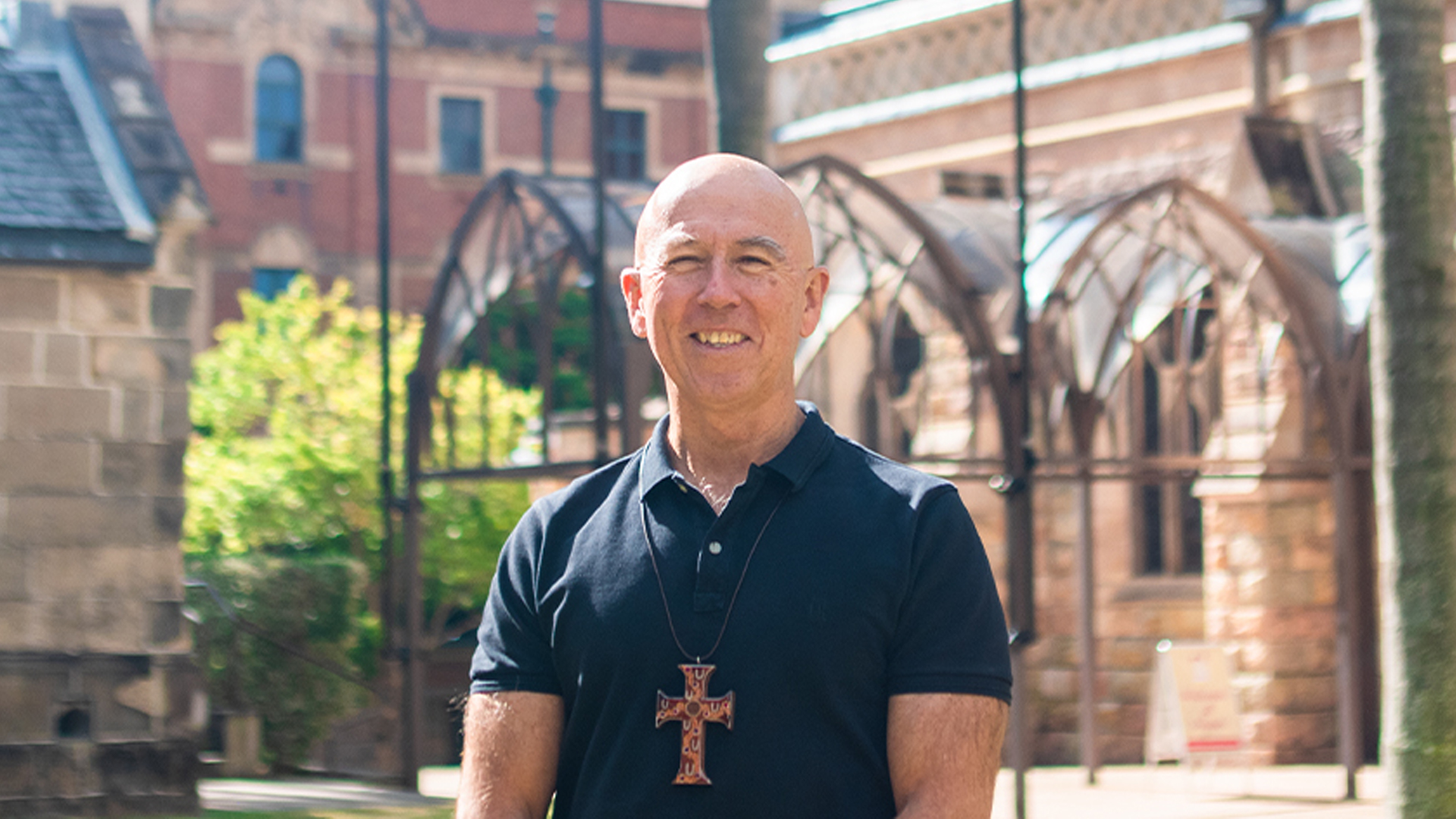Before dawn on Palm Sunday, a group of walkers set out on a pilgrimage from Brisbane to Cherbourg. The seven-day trek during this Holy Week sends pilgrims on a trail that will bring us to Cherbourg on Easter Saturday. The route will be a mixture of old rail trails and a Cobb & Co route, parts of which are believed to be based on an Aboriginal song-line.
It’s a pilgrimage organised by Emmanuel City Mission, who provide care for the homeless and vulnerable from their South Brisbane base.
The Emmanuel Community continues to help young people from Cherbourg. The pilgrimage is a way to connect, respect, honour and better understand that community. Pilgrimage is an honoured practice that stretches back centuries in many religious traditions.
While pilgrimages are journeys undertaken by stretching our bodies, they are also meant to stretch our souls on an inner journey. They are sometimes used as a rite of passage. They’re not meant to only be scenic journeys. In fact, a priest once noted that a pilgrim is always at risk of becoming a tourist. Appreciate the beauty by all means, but keep focused on the pilgrimage.
When I was working in Italy, organising renewal courses for clergy and religious from across the world, we would start each course with a pilgrimage to the home of a significant missionary to China. St Joseph Freinademetz’s story is remarkable and a trip to his home always leaves visitors with much to ponder. Joseph was one of the early members of the Society of the Divine Word – the religious order that I joined many years ago. The odds weren’t in Joseph’s favour when he first arrived in mainland China in 1879. He encountered a province with 12 million inhabitants, including only 158 Christians. But his personal motto – “the language that all people understand is that of love” – inspired him for almost 30 years in China. Prior to his death, he famously stated: “When I die, I want to be Chinese in Heaven”. His gravesite in China is a destination for pilgrims, as is his family home in the mountains of northern Italy where Joseph learned “the tenacity typical of mountain people” according to Pope John Paul II in his canonisation speech. The chapel that now forms part of his family home is a place in which pilgrims sit, often for long periods and without the need for invitation.
The ex-concentration camp in Dachau, southern Germany was another stop on the pilgrimage with the sisters, brothers and priests in my renewal courses. More than 30,000 documented deaths occurred there after the camp was opened 90 years ago last month. The camp housed over 2720 priests, 95 per cent of whom were Catholic. Over 1000 of them died in the camp. It’s a destination where some people can spend three hours and still need more time, while one hour is too much for others. It’s confronting and it’s not for everyone. But it can be a place for prayer. On each pilgrimage we celebrated Mass in the chapel of the Carmelite Sisters which is located on the edge of the ex-concentration camp. These masses were particularly moving when pilgrims spoke of their own experiences of cultural or religious persecution in their countries of origin.
The Camino trail in Europe is one of the best-known Catholic pilgrimages, dating back more than 1000 years. I completed that pilgrimage for my 60th birthday and I was fascinated by the people I met along the way. Not everyone was religious but everyone had their reason for walking, and all were respectful of why so many people had walked this route for centuries.
When people do pilgrimages, they want to step out of themselves and experience something bigger than their own humanity. We call that an encounter with God. I have every belief that my faith will be strengthened by this journey to Cherbourg in this Holy Week. It’s a time away and a time out from our normal rhythm. And it gives space for the Spirit to do what the Spirit does.
